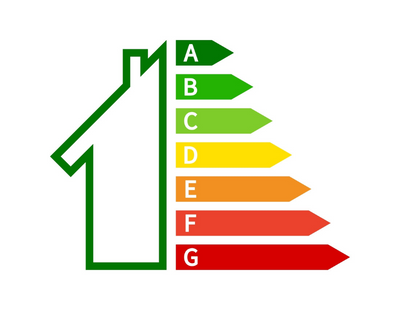
A property consultancy is calling for improved accreditation for Energy Performance Certificate assessors.
Re:solve Real Estate - which specialises in commercial property - claims it consistently sees flawed EPC assessments and ratings which upon reassessment are found to be significantly different.
The company’s senior building surveyor, Andy Heath, says: “As building surveyors, much of our work and recommendations rely on the EPC ratings of our projects. However, we often encounter significant fluctuations in these ratings, depending on the assessor and when it is completed.
"We frequently have to reevaluate projects that were initially assessed by qualified professionals, as we find that the true rating actually falls within band B instead of its current D rating.
“A large proportion of issues are as a result of assessors not sourcing quality and confirmed data. Often ratings are finalised off assumptions and is a key downfall within the industry.
“I believe I can speak on behalf of my peers when I say that the accreditation required for assessing a building's energy does not meet the industry's standards.
“We work with professional EPC assessors who are up against assessors with minimal qualifications from a short two-week course. The ever-changing model means that energy ratings are in a constant state of flux, creating significant legal complications for our clients who are constantly trying to keep up with shifting standards.
“To challenge this head-on, improved accreditation standards are essential to bolster the credibility of assessments and minimise errors, biases, and discrepancies.”
The company claims this was particularly evident in Re:volve Real Estates recent Gordon House project, a 30,000 square foot office space near Preston.
Re:volve conducted wha it calls “rigorous future-proofing maintenance and thorough assessment of the building” which discovered a significant difference between the required assessment and the one conducted. Despite the project's complexity, warranting a Level 4 EPC Assessor due to its intricate HVAC system, the assessment was carried out by a Level 3 Energy Assessor.
As a result, the initial assessment yielded a much lower D EPC rating, which was below the expected standard for a building of this calibre and rendered the rating inaccurate. However, upon reassessment by a properly qualified Level 4 assessor, the EPC rating was upgraded to a B, reflecting the true energy efficiency of the building.
Heath continues: “We routinely find assessors assuming aspects of the building such as its U values, air permeability rate, level of insulation, heating systems, windows and lighting … Qualifications for assessors would improve industry standards and enable assessors to work more efficiently and with better accuracy. Implementing higher standards universally will lead to enhanced industry performance, increased compliance, and a raised bar for excellence.”














.png)


.png)




Join the conversation
Jump to latest comment and add your reply
As a chartered surveyor I have commissioned a large number of commercial EPCs over the last 16 years, since the UK's EPC National Measurement System started. EPCs have a technical life-span of 10 years, but buildings change over the years and the Government goes to great lengths to keep the national EPC software up-to-date and accurate. It is standard practice in the property industry to commission an up-to-date DRAFT EPC, if a landlord is seeking to upgrade the quality of their rental asset. You do not rely on a document that may have been prepared 9 years ago.
Andy Heath is correct in the fact that a EPC is a reflection of the quality of information fed into the calculation. Landlords who actually provide data from their files to the professional energy assessor always end up with better and more accurate EPC Grades. It's like going to your GP if you are ill, NOT speaking to them and then expecting an accurate diagnosis.
EPCs and the Conservative's Minimum Energy Efficiency Standard (MEES) have been massively successful in steadily improving the quality of rental buildings - driving down running costs for tenants, reducing CO2 pollution and improving thermal comfort for occupiers in both summer and winter months. When David Cameron bought in the MEES standard in 2015 19% of the UK's commercial rental buildings were of appalling quality, being EPC Grade F or G. By 2023 this figure had dropped to practically 0%. In just 8 years commercial landlords have improved something in the order of 200,000 commercial buildings.
EPCs and the MEES standard have been a British success story. As Andy says, the trick is to hire a skilled and experienced energy assessor - just as you would do with appointing any other professional service provider.
Please login to comment